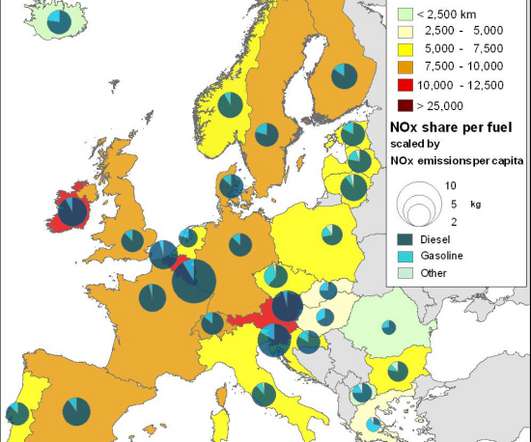New cars in Europe in 2013 collectively met 2015 CO2 target two years ahead of the deadline
Green Car Congress
MAY 1, 2014
Thus, in 2013 the European Union fleet already collectively met its legal target for 2015. The average per-km CO 2 emissions for gasoline-fueled cars was 128.62 The main drivers of efficiency have been technological improvements and higher sales of diesel cars, which typically have lower CO 2 emissions levels than gasoline equivalents.















Let's personalize your content